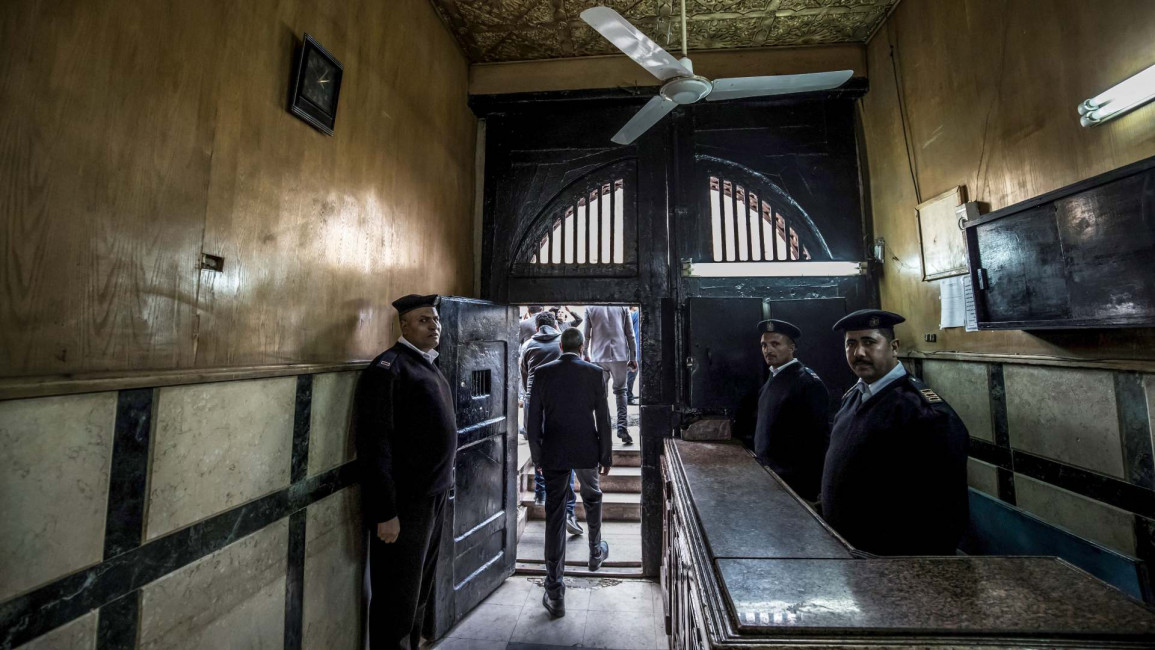Rights group to 'expose, prosecute' Egypt torture perpetrators
Al-Shehab Centre for Human Rights, Adalah Foundation for Human Rights, and the International Peace Foundation for the Protection of Human Rights announced the "Against torture - No Torture in Egypt" campaign - a collaborative effort intended to shed light on abuses by Cairo.
The campaign is due to start on Monday and encompasses a range of events and awareness projects, including the naming and shaming of the perpetrators of torture and highlighting the cases of those tortured in detention.
"The campaign against torture will shed light on the seriousness of the crime in Egypt and the extent of its violations of national and international law," director of Al-Shehab Centre, Khalaf Bayoumi said, according to Arabi21.
"The campaign will also monitor and document crimes of torture with the aim of gathering a list to expose and prosecute perpetrators," Bayoumi added.
"Global supporters of the campaign agreed to participate with us to embolden the move," he said.
Bayoumi urged others to take part by reposting and publishing its awareness material across social media platforms.
Though illegal both under national and international law, the torture of detainees in Egypt is common.
In possibly one of the most prominent cases of alleged torture, Egypt's former President Mohamed Morsi was mistreated in prison prior to his unexpected death.
Earlier this month, Human Rights Watch called for Egyptian authorities to be investigated over the alleged torture and mistreatment of the former president - the country's first democratically-elected leader.
The rights watchdog's call came on the first anniversary of the Freedom and Justice Party leader's death in a Cairo courtroom on 17 June last year.
HRW said the United Nations Human Rights Council, which will hold its next sitting on 24 June, should establish an investigation into Morsi's death, as well as ongoing violations of human rights in Egypt.
"Former President Morsi's death followed years of government mistreatment, prolonged solitary confinement, inadequate medical care, and deprivation of family visits and access to lawyers," said Sarah Leah Whitson, Middle East and North Africa director at Human Rights Watch.
"At the very least, the Egyptian government committed grave abuses against Morsi by denying him prisoners' rights that met minimum standards."
Morsi, 68, collapsed into a coma while being held in a courtroom cage during one of his trials. According to Egypt's prosecutor general's office, the former president lost consciousness after speaking for roughly five minutes.
Read also: Mohamed Morsi didn't 'die' - he was killed
During his six years in detention, Egyptian authorities allegedly denied Morsi sufficient medical care and blocked family visits. This was despite repeated requests to Egypt's judiciary for access to medical care.
HRW has highlighted that such treatment violates the International Covenant on Civil and Political Rights and contravenes the UN Standard Minimum Rules on the Treatment of Prisoners.
It also possibly amounts to torture under the UN Convention against Torture.
Morsi, a former scientist, became the country's first democratically-elected president in elections held following Egypt's 2011 uprising that toppled dictator Hosni Mubarak.
His time in office was cut short when a 2013 military coup led to his arrest, along with that of the Muslim Brotherhood's leadership. In mass trials criticised by rights groups, Brotherhood members were handed multiple life sentences and sentenced to death.
Since the coup, Egypt has been controlled by military general-turned-president Abdel Fattah al-Sisi, whose time in power has been characterised by increasing authoritarianism.
Follow us on Facebook, Twitter and Instagram to stay connected



